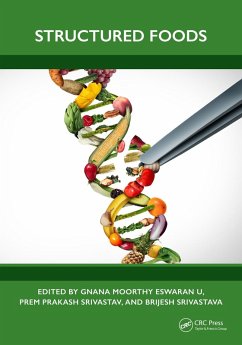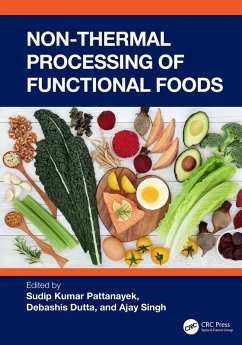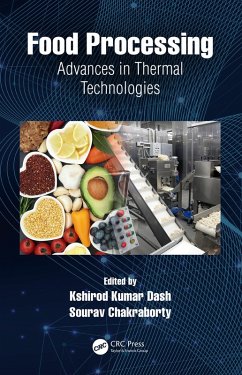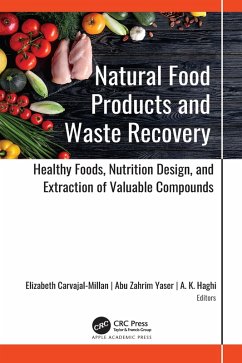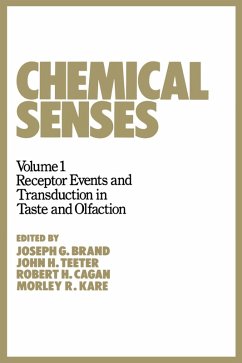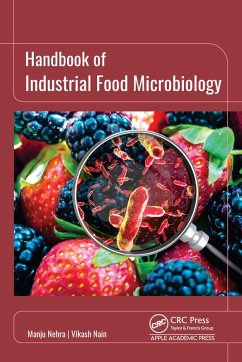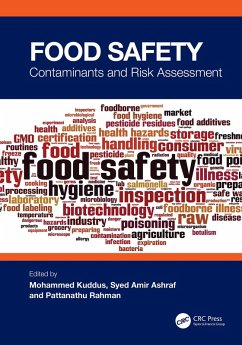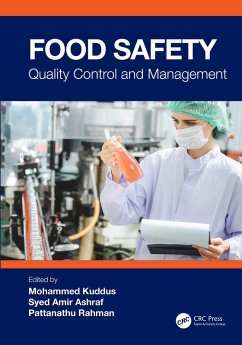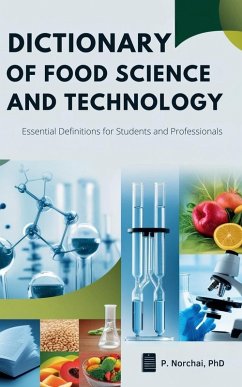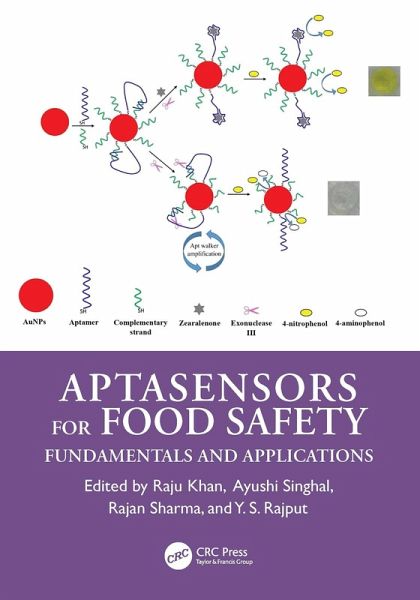
Aptasensors for Food Safety (eBook, ePUB)
Fundamentals and Applications
Redaktion: Khan, Raju; Rajput, Y S; Sharma, Rajan; Singhal, Ayushi
Versandkostenfrei!
Sofort per Download lieferbar
182,95 €
inkl. MwSt.
Weitere Ausgaben:

PAYBACK Punkte
91 °P sammeln!
This reference book provides updated knowledge on fundamentals and applications of aptasensorsin food science. It discusses aptamer selection strategies including Systematic Evolution of Ligandsthrough EXponential enrichment (SELEX), Capture SELEX, Cell SELEX, and GO SELEX strategiesfor aptasensor design involving well-studied and newly emerged nanomaterials, food analysisfocusing on its safety, aptasensing techniques relevant to detection of food pathogens, pesticides,veterinary drug residues, toxins, heavy metals, allergens, and future perspectives of aptamers infood science and technology. ...
This reference book provides updated knowledge on fundamentals and applications of aptasensors
in food science. It discusses aptamer selection strategies including Systematic Evolution of Ligands
through EXponential enrichment (SELEX), Capture SELEX, Cell SELEX, and GO SELEX strategies
for aptasensor design involving well-studied and newly emerged nanomaterials, food analysis
focusing on its safety, aptasensing techniques relevant to detection of food pathogens, pesticides,
veterinary drug residues, toxins, heavy metals, allergens, and future perspectives of aptamers in
food science and technology. The book focuses on recent developments in aptasensors and their use
in detection of contaminants in food. The book is an excellent resource for R&D organizations
dedicated to the development of biosensors in general and aptasensors in particular for the detection
of environmental contaminants in the food supply chain. Also, the contents of the book will
be useful to researchers, postgraduate students, analytical chemists, food scientists, and regulatory
authorities.
in food science. It discusses aptamer selection strategies including Systematic Evolution of Ligands
through EXponential enrichment (SELEX), Capture SELEX, Cell SELEX, and GO SELEX strategies
for aptasensor design involving well-studied and newly emerged nanomaterials, food analysis
focusing on its safety, aptasensing techniques relevant to detection of food pathogens, pesticides,
veterinary drug residues, toxins, heavy metals, allergens, and future perspectives of aptamers in
food science and technology. The book focuses on recent developments in aptasensors and their use
in detection of contaminants in food. The book is an excellent resource for R&D organizations
dedicated to the development of biosensors in general and aptasensors in particular for the detection
of environmental contaminants in the food supply chain. Also, the contents of the book will
be useful to researchers, postgraduate students, analytical chemists, food scientists, and regulatory
authorities.
Dieser Download kann aus rechtlichen Gründen nur mit Rechnungsadresse in A, B, BG, CY, CZ, D, DK, EW, E, FIN, F, GR, HR, H, IRL, I, LT, L, LR, M, NL, PL, P, R, S, SLO, SK ausgeliefert werden.




